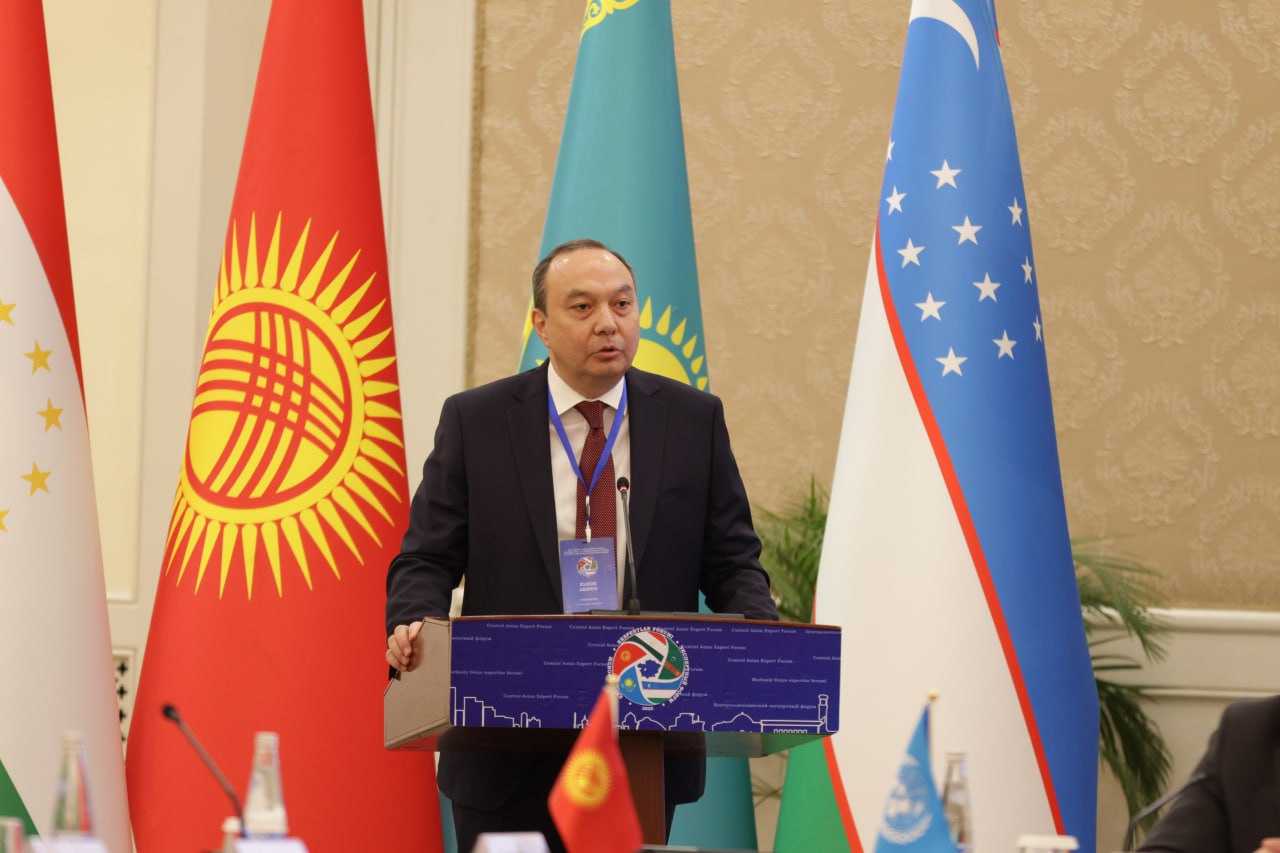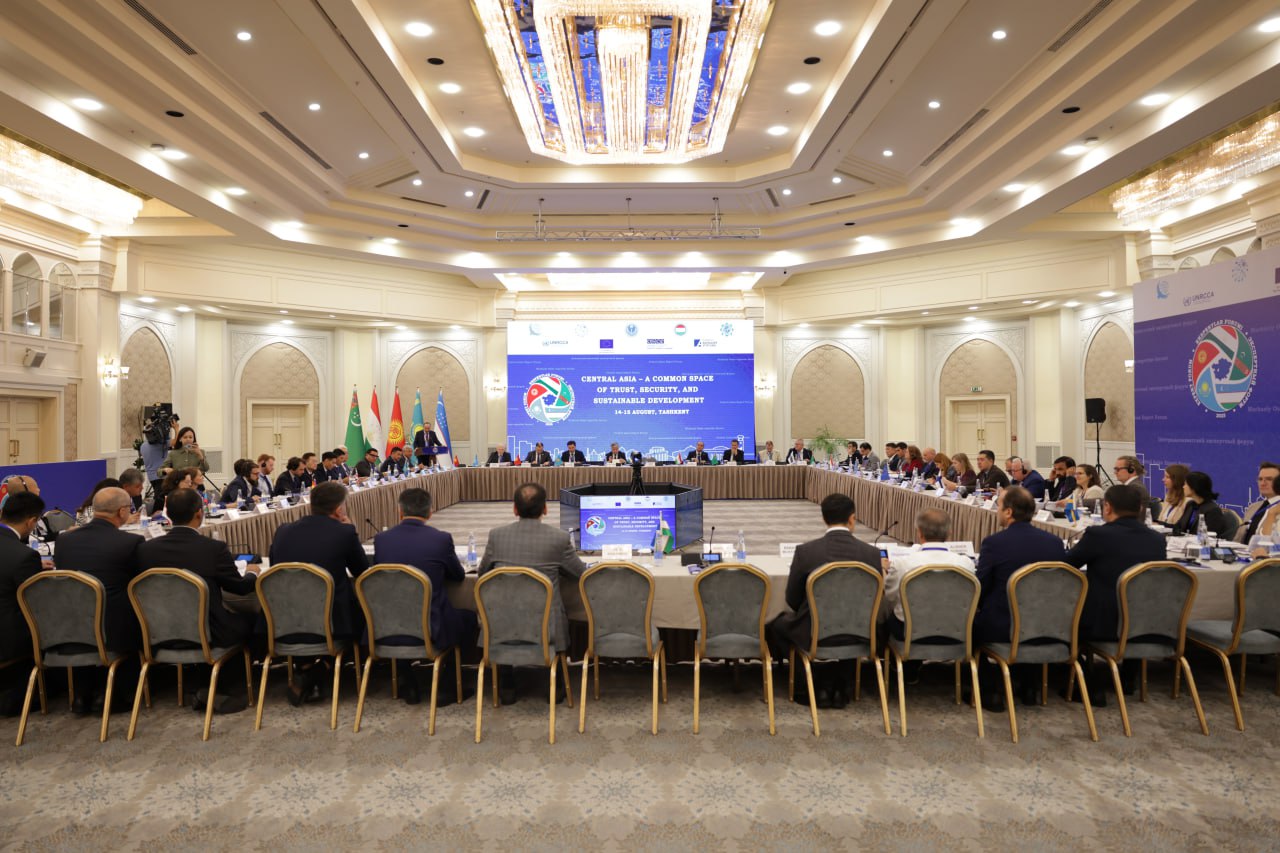Eldor Aripov: The CAEF is becoming a laboratory for generating new ideas and proposals

Today in Tashkent, the 8th Central Asian Expert Forum (CAEF) opened under the motto “Central Asia – A Common Space of Trust, Security, and Sustainable Development”.
In his welcoming remarks at the opening ceremony, Eldor Aripov, Director of the Institute for Strategic and Regional Studies under the President of the Republic of Uzbekistan (ISRS), noted that the CAEF “is becoming a laboratory for generating new ideas and proposals aimed at strengthening the vector and the very architecture of regional cooperation”.
Continuing his address, the ISRS Director shared his perspective on current developments in Central Asia. “I believe you will agree that on the path of regional rapprochement and consolidation, our countries have already come a long way”, he emphasized.
According to Aripov, the region has developed a stable and, in many respects, unique model of interstate cooperation that ensures stability, security, and sustainable development. He stated that “against the backdrop of global turbulence, Central Asia is one of the few successful examples of effective regional cooperation in the world”.
In this regard, he emphasized the importance of the Consultative Meeting of the Heads of State of Central Asia, initiated by President of Uzbekistan Shavkat Mirziyoyev in 2017. This format, he noted, has become a reliable mechanism for strengthening the institutional and legal framework of regional cooperation.
He added that “more than twenty important conceptual documents have already been adopted, including long-term ones, defining the priorities and mechanisms of our cooperation in key areas”.
The expert also highlighted the historical significance of the Khujand Declaration of Eternal Friendship, signed in March by the Presidents of Uzbekistan, Kyrgyzstan, and Tajikistan. He stressed that “it symbolically put behind all contentious territorial issues and marked a new era of openness, dialogue, and good-neighborliness in interstate relations”.
A significant step forward, he said, was the establishment of the institution of the Council of National Coordinators for the Consultative Meetings of the Heads of State of Central Asia.
As a result, Aripov emphasized, all countries of the region without exception have become beneficiaries of regional cooperation. “Whatever sector we look at, we have quite good results”, the ISRS representative asserted.
At the same time, he stressed that moving forward requires focusing on improving existing mechanisms and institutions, as well as on implementing the agreements reached at the summits of the Heads of State of Central Asia.
He also expressed hope for the successful completion of the process of approval by all countries of the Treaty on Friendship, Good-Neighbourliness, and Cooperation, emphasizing its importance for the future of regional integration.
Eldor Aripov further noted that enhancing the economic return from regional cooperation is becoming a priority.
“Our mutual trade is growing, but it remains at a low level – the share of intra-regional transactions accounts for just over 8 percent of total trade”, the ISRS Director stated.
According to Mr. Aripov, the key barriers are limited markets and logistical dependence. In this context, he recalled the words of the President of Uzbekistan Shavkat Mirziyoyev: “Our strategic goal is the formation of a Single Regional Market in the long term”.
To achieve this, Mr. Aripov believes it is necessary to remove trade barriers and digitalize logistics. In this regard, he referred to the initiative of the President of Uzbekistan to launch the Central Asian Economic Council, regular meetings at the level of deputy prime ministers of the region’s countries.
He also stressed the importance of developing proprietary financial instruments to support cooperation, recalling the President of Uzbekistan’s proposal to establish a Central Asian Investment Council and a Regional Innovation Development Bank.
The expert paid special attention to cooperation in the field of security, noting the relevance of developing a unified vision and approaches in this area.
“The basis could be the initiative of the President of Uzbekistan to develop and adopt the Concept of Regional Security and Stability in Central Asia. A draft of the relevant document was already presented during the second meeting of the secretaries of the security councils of the Central Asian countries, held in April this year”, the ISRS Director clarified.
Finally, as Mr. Aripov noted, an essential task is to intensify cultural and humanitarian cooperation. In his words, the long-term sustainability of regional integration is primarily determined by a strong social foundation, formed through humanitarian and youth initiatives. In this regard, he highlighted the importance of the President of Uzbekistan’s proposals – to develop a Central Asian program for educational and academic exchanges, to conclude an agreement on the mutual recognition of diplomas from leading universities in the region, and to allocate mutual scholarships for the education of talented students.
“I am deeply convinced that it is precisely such initiatives that create the foundation for integration at the societal level, ensuring support for the regional agenda in the long term, regardless of the political situation”, Mr. Aripov concluded.
In this context, the importance of strengthening regional identity was also emphasized. According to the ISRS Director, the prospects of regional cooperation will depend on “our ability to form a certain common value-based foundation for integration, to identify ourselves not only as citizens of our own countries, but also as representatives of our common Central Asian home”.
It should be recalled that the CAEF is organized by the ISRS. The event’s partners are the UN Regional Centre for Preventive Diplomacy for Central Asia, the Delegation of the European Union to Uzbekistan, the Organization for Security and Co-operation in Europe (OSCE), and the Konrad Adenauer Foundation.
Central Asia is traditionally represented at the forum by the heads and specialists of strategic institutions, research centers, and academic circles of the region’s countries. For the first time, prominent experts from the EU, ASEAN, the Nordic Council, as well as researchers from Russia, the United States, the United Kingdom, Switzerland, and Azerbaijan have been invited to participate, to share experience in regional studies.







